Bangkok, a city renowned for its vibrant street food culture and aromatic dishes, might not be the first place that comes to mind when thinking about vegetarian or vegan cuisine. However, beneath the surface of sizzling meats and fish sauce lies a thriving plant-based food scene. Over the past decade, the Thai capital has quietly transformed into a haven for herbivores, offering everything from traditional Buddhist-inspired fare to innovative vegan twists on classic dishes. The rise of vegetarianism in Bangkok reflects both global trends and local traditions, creating a unique culinary landscape that caters to all palates.
The roots of vegetarianism in Bangkok run deep, intertwined with Buddhist practices and Chinese cultural influences. During the annual Vegetarian Festival, the city undergoes a remarkable transformation, with street vendors and restaurants alike adopting yellow flags to signify meat-free offerings. While this festival lasts only nine days, its impact lingers throughout the year, as many Bangkokians continue to explore plant-based options long after the celebrations end. The growing awareness of health and environmental concerns has further propelled the vegetarian movement, making it more than just a religious observance but a lifestyle choice for many urban dwellers.
Navigating Bangkok's vegetarian scene reveals an exciting mix of establishments. From humble street food stalls serving meat-free versions of pad thai and som tam to upscale vegan restaurants crafting exquisite plant-based interpretations of royal Thai cuisine, the options are surprisingly diverse. The city's multicultural fabric means you can find everything from Indian vegetarian thalis to Japanese shojin ryori (Buddhist temple cuisine), all contributing to Bangkok's reputation as Asia's unexpected vegetarian capital. What makes the experience particularly special is how seamlessly vegetarianism integrates with Thai food culture rather than standing apart from it.
The flavors of Bangkok's vegetarian cuisine showcase the incredible adaptability of Thai cooking. Traditional dishes like green curry or tom yum soup lose none of their complexity when prepared without animal products. Chefs skillfully substitute mushrooms, tofu, or textured vegetable protein for meat, while maintaining the perfect balance of sweet, sour, salty, and spicy that defines Thai cuisine. Local markets overflow with fresh tropical fruits and vegetables that form the foundation of these dishes, while specialty stores offer imported vegan cheeses and meats for those craving familiar Western flavors. This harmonious blend of authenticity and innovation makes Bangkok's vegetarian food scene truly exceptional.
For travelers seeking vegetarian options, Bangkok offers several distinct culinary neighborhoods worth exploring. The historic Banglamphu area, home to the famous Khao San Road, features numerous vegetarian-friendly street food vendors and casual eateries. Thonglor and Ekkamai, known for their trendy cafes and restaurants, boast several establishments specializing in health-conscious, plant-based meals. Chinatown's Yaowarat Road transforms during the Vegetarian Festival but also houses several longstanding vegetarian restaurants serving Chinese-Thai fusion dishes year-round. Each district presents its own take on meat-free dining, reflecting the character of its community.
Beyond restaurants, Bangkok's vegetarian culture permeates various aspects of daily life. Supermarkets now dedicate entire sections to plant-based products, cooking schools offer vegetarian Thai cuisine classes, and food delivery apps allow users to filter for meat-free options. The city even hosts regular vegan festivals and markets where local producers showcase their creations. This infrastructure makes maintaining a vegetarian or vegan lifestyle in Bangkok remarkably convenient, especially compared to other Southeast Asian capitals. The widespread availability of vegetarian food at all price points—from 30-baht street meals to high-end dining experiences—demonstrates how inclusive this movement has become.
As Bangkok's vegetarian scene continues to evolve, it faces both challenges and opportunities. While awareness and availability have improved significantly, language barriers can still make communicating dietary requirements difficult at traditional eateries. The widespread use of fish sauce and shrimp paste in Thai cooking means vegetarians must remain vigilant. However, the growing number of explicitly vegetarian and vegan establishments, along with increasing English-language menus marked with vegetarian symbols, suggests these hurdles are gradually being overcome. The future looks bright as younger generations of Thai chefs embrace plant-based cooking, reimagining their culinary heritage through a sustainable, compassionate lens.
What makes Bangkok's vegetarian landscape so compelling is its authenticity. Unlike some Western cities where vegetarianism can feel like a countercultural movement, in Bangkok it flows naturally from longstanding traditions while embracing contemporary innovations. The result is a vegetarian dining scene that feels distinctly Thai—vibrant, flavorful, and welcoming to all. Whether you're a committed vegan, a flexitarian, or simply a curious food lover, Bangkok's meat-free offerings provide a delicious window into how global dietary trends adapt to local contexts. The city proves that vegetarian cuisine need not sacrifice cultural identity or culinary excitement, offering lessons that extend far beyond its bustling streets.

By /Aug 13, 2025

By /Aug 13, 2025

By /Aug 13, 2025

By /Aug 13, 2025

By /Aug 13, 2025
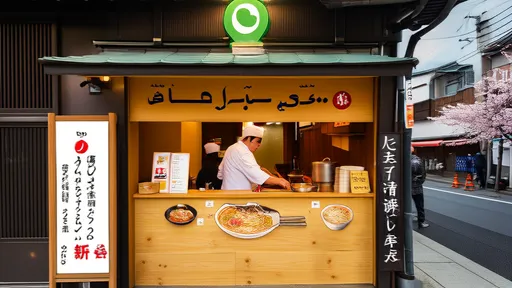
By /Aug 13, 2025
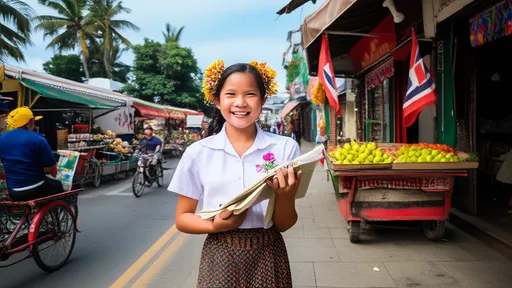
By /Aug 13, 2025
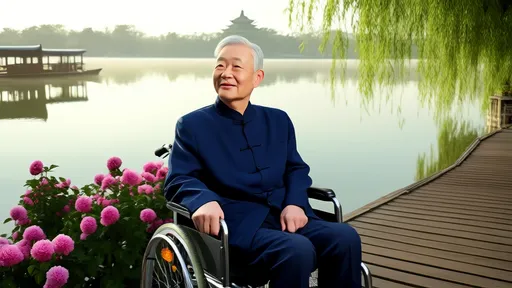
By /Aug 13, 2025

By /Aug 13, 2025

By /Aug 13, 2025
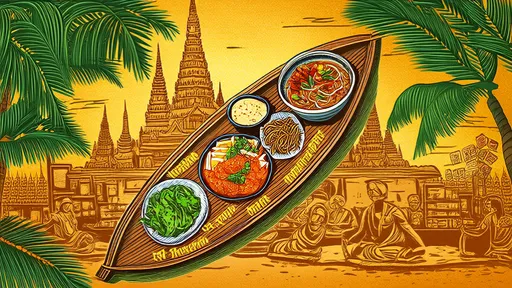
By /Aug 13, 2025

By /Aug 13, 2025

By /Aug 13, 2025

By /Aug 13, 2025

By /Aug 13, 2025

By /Aug 13, 2025

By /Aug 13, 2025

By /Aug 13, 2025
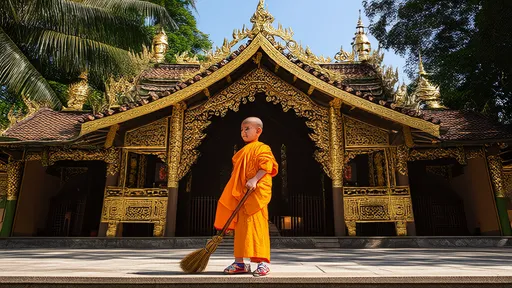
By /Aug 13, 2025

By /Aug 13, 2025